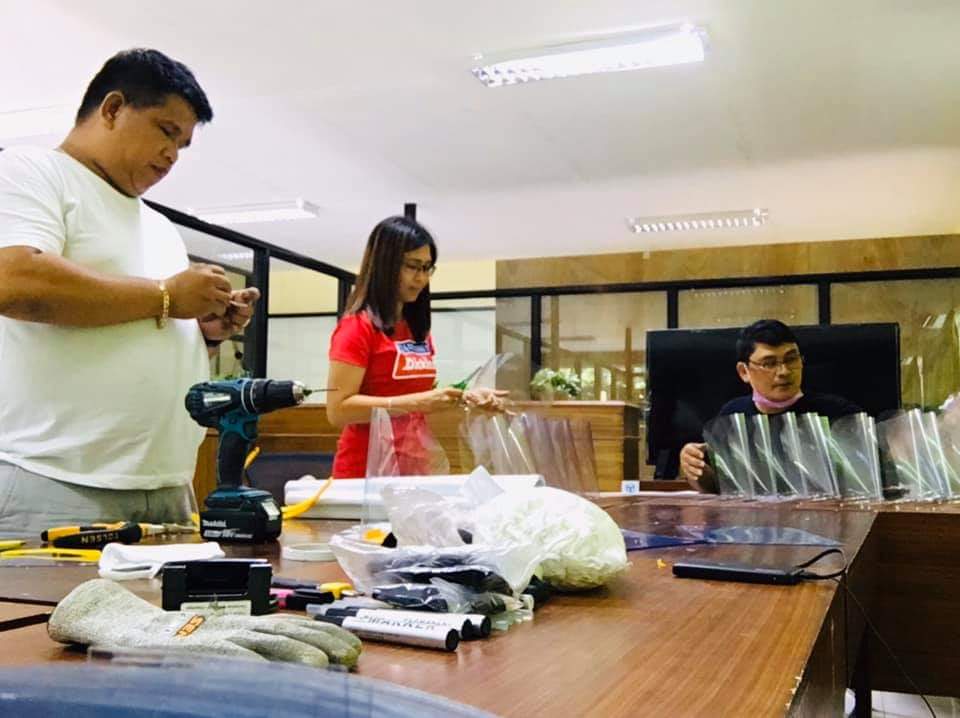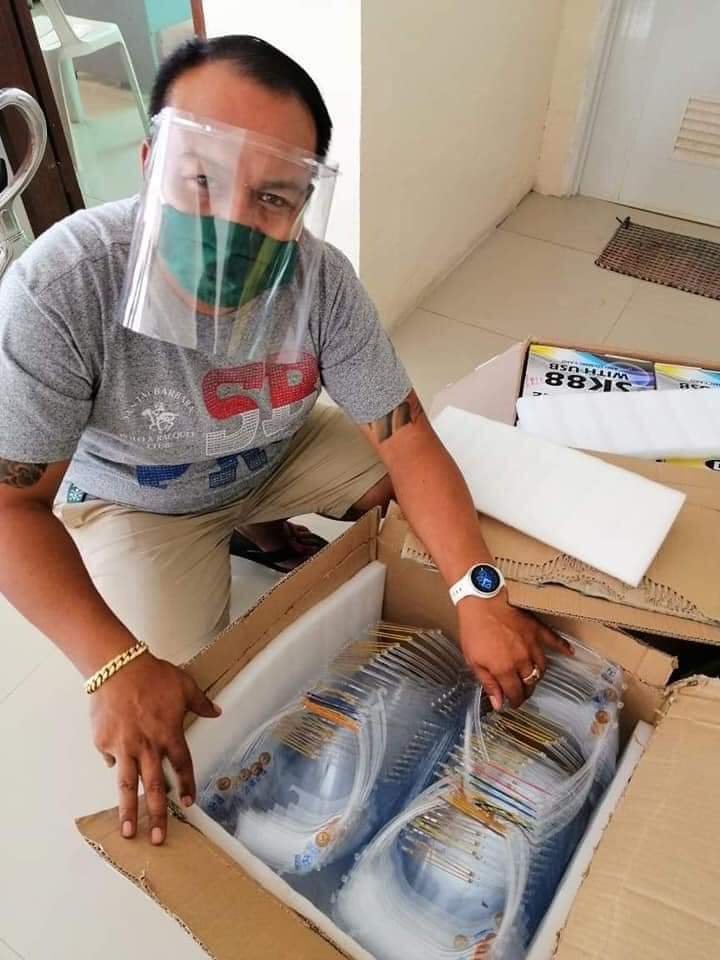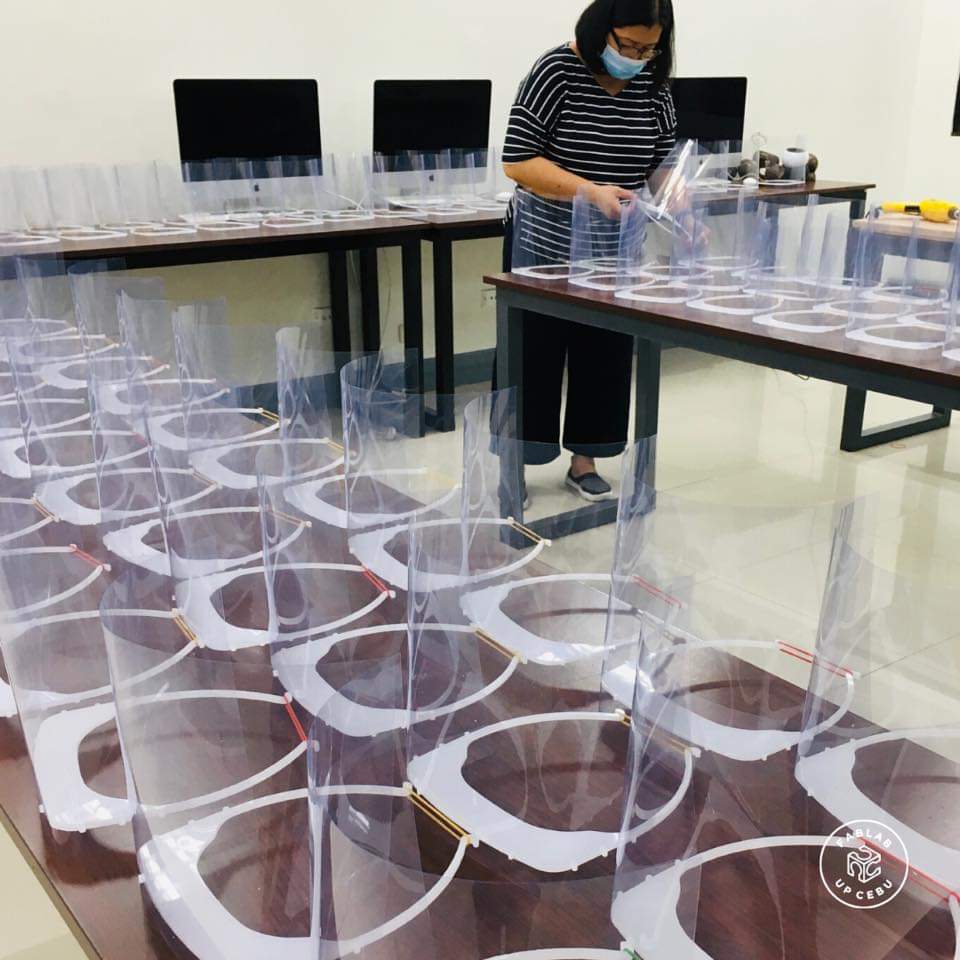
The Department of Trade and Industry-Regional Operations Group (DTI-ROG), spearheaded by Undersecretary Blesila Lantayona, and DTI-Region 7 have activated its network of fabrication laboratories (FabLabs) in Central Visayas to produce personal protective equipment (PPEs) in the fight against the Coronavirus Disease 2019 (COVID-19).
A team of volunteers, faculty members and staff at school-based FabLabs in the region have designed and produced personal protective equipment to contribute to the much-needed supply of PPEs in the region.
Central Visayas has eight FabLabs three located in Bohol, Negros Oriental and Siquijor, and five in Cebu.
“As of April 16 this year, FabLabs in Central Visayas have produced 24, 358 face shields, 4,093 cloth face masks, 359 medical gowns, and 20 aerosol boxes. All eight fablabs in Central Visayas have been busy for the past month producing PPEs,” Philippines’ FabLab Champion and DTI-Region 7 Assistant Regional Director Maria Elena Arbon reported.
Arbon also said that FabLabs in Central Visayas are part of a network of FabLabs in the Philippines working closely together with their stakeholders, and partners in both government and private sectors, to respond to the needs amid the pandemic outbreak in our country.


“Overall, Fablabs in the Philippines produced 46,055 face shields, 23,104 cloth face masks, 1,201 medical gowns, and 217 aerosol boxes as of April 16, 202. We are still accepting donations of raw materials for the production of the PPEs,” said Arbon.
Director Arbon encourages everyone to visit the following google site, https://tinyurl.com/FablabPHResponse, to link themselves to a FabLab near their vicinity and ask for any assistance that the laboratory can do. This is also a way for local suppliers of raw materials to get in touch with FabLabs in their area so these facilities can continue with the mass production.
DTI-ROG Assistant Secretary Asteria Caberte, who pushed for the funding of the project and boosted morale of volunteers, informed the public that FabLabs are not the only DTI-assisted programs responding to the COVID crisis.
“We have DTI assisted MSMEs such as Uniform Solutions, Tubigon Loomweavers Multi–purpose Cooperative, LAMAC Multi-purpose Cooperative and Alter to Enhance Clothier that are also mass producing cloth face masks. These cooperatives and business enterprises are repurposing their manufacturing capacity to meet local demand. We have always encouraged those we have assisted to exercise their corporate responsibility and give back to the community in whatever way they can,” Asec. Caberte added.
A fabrication laboratory is a technical prototyping platform for innovation and invention that allows local manufacturers and creatives to make prototypes and products such as equipment, machinery and electronic gadgets; create scale models, illustrate graphic designs and mass-produce products, among others. A fab lab is typically equipped with an array of flexible computer-controlled tools that cover several different length scales and various materials, with the aim to make “almost anything”.
FabLabs in the Philippines are closely aligned with the global open-source maker culture, and the free and open-source movement, and shares philosophy as well as technology with them.
The International FabLab Network is an open, creative community of fabricators, artists, scientists, engineers, educators, students, amateurs, professionals, of all ages located in more than 90 countries in approximately 1,500 FabLabs. From community based labs to advanced research centers, Fab Labs share the goal of democratizing access to the tools for technical invention and product innovation. ♦
Date of Release: 21 April 2020


